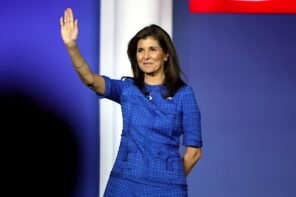The debate over Humanist chaplains in the military continues this week with Family Research Council president Tony Perkins offering several of the most common sentiments held by those who oppose the effort to create this resource for nonreligious members of the military.
Perkins suggests that nonreligious chaplains are a “bizarre” idea, adding that “by definition, a chaplain’s duties are to offer prayer, spiritual counseling, and religious instruction.” The confusion surrounding chaplains for the nonreligious isn’t new—or especially surprising. The popular connotations of the word chaplain are clearly religious; more often than not, they are explicitly Christian.
But if you look, for example, at Harvard University—where I work as one of two Humanist chaplains alongside Greg Epstein—you will find nearly 40 chaplains representing a plethora of religious and philosophical communities, from atheism/Humanism to Zoroastrianism. For many of the traditions represented in this diverse group, the title of chaplain has little to no historical precedent, but as a group we collaboratively work to expand the definition of the word to meet the needs of Harvard’s religiously diverse community.
There was a time when only Christians were permitted to be military chaplains:
At the outbreak of the Civil War, Jews could not serve as chaplains in the U.S. armed forces. When the war commenced in 1861, Jews enlisted in both the Union and Confederate armies. The Northern Congress adopted a bill in July of 1861 that permitted each regiment’s commander, on a vote of his field officers, to appoint a regimental chaplain so long as he was “a regularly ordained minister of some Christian denomination.”
Although Jews were permitted just a year later, it would be another 132 years before the U.S. armed forces saw its first Muslim chaplain. Definitions change, in other words.
Lt. Cmdr. Nate Christensen, a Department of Defense spokesman, has defended the military’s lack of nonreligious chaplains by saying: “The department does not endorse religion or any one religion or religious organization, and provides to the maximum extent possible for the free exercise of religion by all members of the military services who choose to do so.” The implication is that explicitly nonreligious servicemen and servicewomen are free to consult with a religious chaplain. But for the same reason that a Christian may prefer a Christian chaplain over a Muslim or Jewish chaplain, nonreligious people should be free to seek out assistance from a member of their own community.
As a Humanist chaplain, I frequently hear a version of Perkins’ argument (For more on what exactly I do as a chaplain, check out a short piece I wrote last year): “[Advocates] argue that nonbelievers suffer the same fear and pain that affects every service member. But isn’t that why the military has psychologists?” (A serious question: does he mean to imply that religious people don’t visit both chaplains and psychologists?)
Some students and members of our local community visit psychologists, but they come to me and my colleague Greg for different reasons. Psychologists are medical professionals who diagnose and treat behavior and mental processes; chaplains are not. Psychologists provide an important but altogether different set of services than we do. We are available to talk with members of our community about how their nonreligious values inform their actions, and how their worldview helps them respond to and process tragedy. We are there to listen, but we can also share some of our thoughts and share from our experiences—something that most psychologists do not do. We can also go to members of our community, rather than wait for them to come to us, to connect them to a community of their peers—another role a psychologist alone can’t play. Finally, and significantly: going to a psychologist is non-confidential in the military, so chaplains play an important role in that context.
So what about the debate surrounding the use of the word chaplain? Personally, I don’t feel particularly attached to it. But when it is the standard used for other community care practitioners, as it is at Harvard and in the military, then it should be applied across the board. I feel similarly about the debate over whether to call legally-recognized same-sex partnerships “marriages” or “civil unions;” when one term is normative and certain groups of people—minority groups that have historically been marginalized—are excluded from using it, then the distinction is problematic.
“Atheist chaplains are like vegetarian carnivores. They don’t exist!” Perkins writes. He’s likely just trying to be clever, but allow me to clarify: we do in fact exist, Tony, and we’re here if you’d like to talk. Hopefully that will soon be the case for members of the military, too.
For more information on Humanist chaplains in the military, click here.




